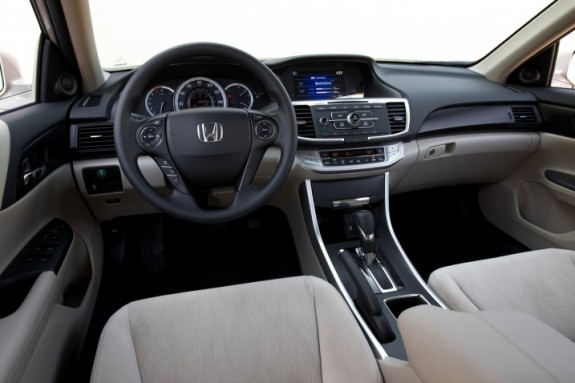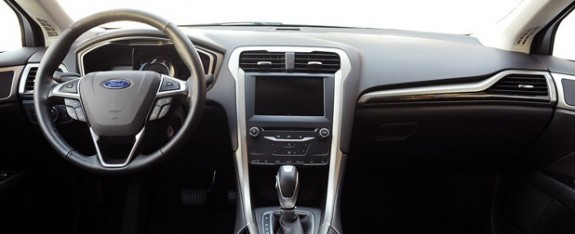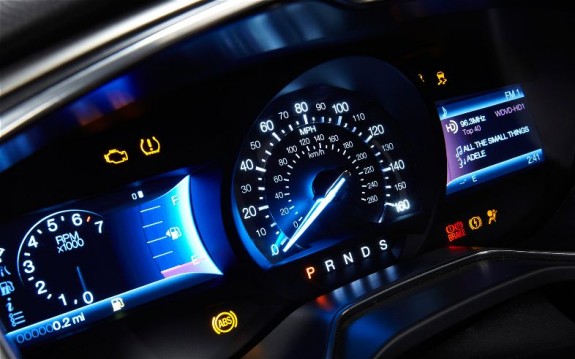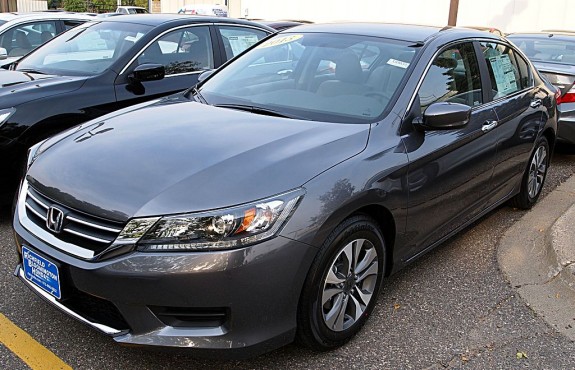Battle Royale: 2013 Honda Accord LX vs. 2013 Ford Fusion SE 1.6

Years ago, right around the time I got my license, I fortunate enough to be given a car by my parents. We bought a simple, 99 Honda Accord EX (5 years old at the time), with over 100K miles. It was a bland as bland gets: 4-cylinder, gold exterior, beige interior, no modifications. Despite all that, the price was right, it was in great shape, and it was mine. I thought it would be mine until it crumbled into dust – which might have taken a long time, given that I never had any issues with it. Well, that was certainly a pipe dream. I now have a good paying job and an aging 07 Accord nearing the 130K mark. Although it’s really not that old and hasn’t shown signs of giving up, I don’t have any illusions about keeping it forever. The newer generation of family sedans have really caught my eye, literally and figuratively. The obvious solution was to drive some, and see if I was missing much – so that’s exactly what I did. A 2013 Ford Fusion SE with the 1.6 EcoBoost was my primary interest, with the 2013 Honda Accord LX being tested immediately afterwards for comparison purposes.
Without a doubt, the Fusion is the better looking of the duo when approaching the vehicles from the outside. The pearl white SE Appearance Package model that I drove only helped that impression. However, once inside, they aren’t all that dissimilar. Both have a large LCD screen dominating the center stack, with automatic dual zone climate control positioned towards the bottom of the stack. Both are very comfortable, but we slightly prefer the Accord’s ergonomics. The MyFord Touch gauge cluster has two customizable LCD screens, though we would have preferred an analog tachometer to complement the analog speedo (like in the Accord). The Fusion’s center console is extremely high, and placing anything in the cupholders will significantly obstruct the arm rest and shift lever. To the Fusion’s credit, while the back seat is tighter on legroom than the Accord, it has comparable head room – an amazing feat, considering the sloped roof line.
The real attraction of these two vehicles are the improved drivetrains. Ford uses a higher-tech turbocharged, low-displacement engine paired with a traditional 6-speed automatic. Honda chose to go with a naturally aspirated 4-cylinder paired with a high-tech CVT transmission. Both promise 36mpg highway with the standard automatic transmissions, but they feel completely different while achieving that lofty number. The 1.6L EcoBoost was a real letdown – despite 184lb-ft of torque at 2500RPM, both my dad (a passenger) and I noticed a perceived lack of power around town. The engine really shines between 3000-5500RPM, where more turbo boost produces great mid-range pull. The engine depends on RPM and gearing for acceleration in the lower rev range as a fuel saving measure.
By contrast, the Accord’s drivetrain makes all that tomfoolery look silly. Counter-intuitively, the reworked 2.4L is noticeably stronger than the turbocharged Fusion at low revs. There wasn’t a chance to test the mid or high-end of the rev range, but instrumented tests from across the magazine industry indicate that it has no problem keeping up with the Fusion’s 1.6. The Fusion’s extra 200lbs of curb weight gives it a severe handicap, but since that comes standard with all Fusion’s, we can’t give it any allowances. A note about the CVT though – while it has received high marks from other sources for good driveability, we still have a slight preference for the Fusion’s 6AT and the Altima’s CVT.
The attitude difference between the two continues in the ride & handling department. Both have firm, yet comfortable, rides while keeping body roll in check, but the similarities end there. The Fusion is the quiet and dependable mate, and its hushed interior is much appreciated. The Accord is more confident and rowdy, using its lively steering to win back those who were turned off by the tire roar over coarse surfaces. Perhaps the Honda could be quieted significantly by replacing the Continental tires, but we wonder how other companies can provide quiet vehicles off the factory floor while Honda continues to struggle with this issue.
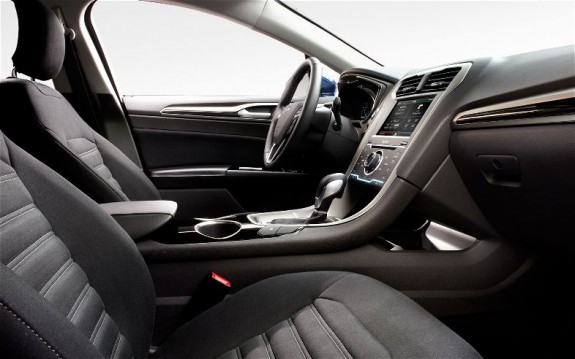
We wished the Fusion's center console was lower, so that the cupholders could actually be functional.
Caveat emptor – be aware that this is Honda’s first CVT in a vehicle this heavy, and the Ford has the smallest displacement engine in the family sedan segment leaning heavily on the turbo – both of which can cause reliability issues down the road. As a result, I personally have deemed that neither is worth the extra expense/risk over my trusty old 2007 Accord, and will hold off a bit longer. However, if my Accord is washed away tomorrow in a flash flood, I would happily have either of the 2013′s in my garage. The edge goes to the Fusion for its quiet ride, better MPG in manual trim, and more available options.


